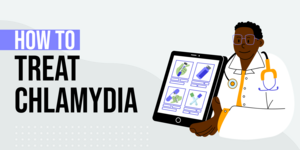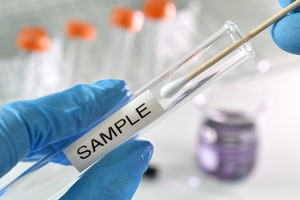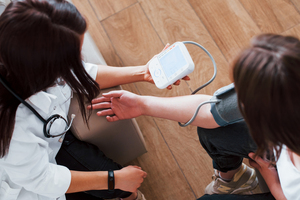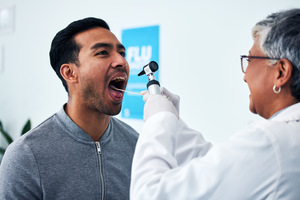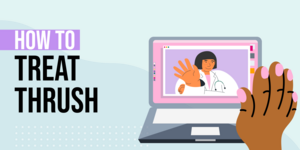Herpes Test near me
Own a clinic? Add your location.
Help patients book appointments with you on Solv. It's free!
13 instant-book locations

Quest Diagnostics
Quest Diagnostics
Self-pay pricing
Clear self-pay prices
No more surprise bills. Solv is committed to making getting healthcare as easy as buying groceries at the store, including knowing the price of care upfront.

Labcorp, Columbus
Labcorp




Quest Diagnostics
Quest Diagnostics
Self-pay pricing
Clear self-pay prices
No more surprise bills. Solv is committed to making getting healthcare as easy as buying groceries at the store, including knowing the price of care upfront.

Quest Diagnostics
Quest Diagnostics
Self-pay pricing
Clear self-pay prices
No more surprise bills. Solv is committed to making getting healthcare as easy as buying groceries at the store, including knowing the price of care upfront.






Abbott Nutrition A Division of Abbott Laboratories
Abbott Nutrition A Division of Abbott Laboratories
Close To Home Center
Close To Home Center
OhioHealth Urgent Care, Grandview
OhioHealth Urgent Care
Close To Home Center
Close To Home Center
Close To Home Center
Close To Home Center
Nationwide Children's, Downtown Urgent Care
Nationwide Children's
Close to Home Center
Close to Home Center
Own a clinic? Add your location.
Help patients book appointments with you on Solv. It's free!
About Herpes Testing
What is herpes?
Herpes is a viral infection caused by the herpes simplex virus (HSV). The two main types of HSV, according to the National Institutes of Health (NIH), are oral herpes (HSV-1) and genital herpes (HSV-2). Oral herpes usually causes blisters or cold sores to form around the mouth, while genital herpes usually causes blisters or sores to form in the genital area.
Herpes is one of the most common viral infections in the United States, and genital herpes affects one in every four Americans aged 18 and older, reports the State of New York Department of Health. Herpes is spread through direct contact with sores, usually when people have vaginal, oral, or anal sex with an infected person. However, according to the NIH, herpes can spread even if an infected person has no visible sores.
How to contract herpes
Herpes is spread through direct skin-to-skin contact with an infected person, reports the State of New York Department of Health. It adds that herpes can spread even when an infected person does not have any sores or other signs of herpes.
The NIH says the best way to reduce your risk of genital herpes is to abstain from having sex and to use condoms consistently and correctly when you do have sex. Staying in a long-term relationship with someone who does not have herpes is another effective way to reduce your risk for genital herpes.
What is a herpes test?
A herpes test, also known as an HSV test, is an STD test that looks for the presence of HSV in your body. An HSV test can determine whether sores on your mouth or genitals are caused by HSV, reports the NIH. An HSV test can also diagnose a herpes infection in women who are pregnant and determine whether there is risk to the newborn.
What is the treatment for herpes?
The NIH reports that herpes cannot be cured, and no effective herpes treatment can make this infection go away permanently. However, the CDC reports that certain medications may reduce your symptoms and reduce your ability to spread herpes to your sex partner. The CDC adds that antiviral medications may also prevent or shorten outbreaks while these medications are being used.
Herpes Test FAQs
What is a herpes (HSV) test?
An HSV test can detect the presence of HSV in your body. According to the NIH, this STD test is available as a swab test, or blood test. Knowing whether you have herpes can help you avoid spreading it to others, including an unborn baby.
What is a herpes test used for?
A herpes test is typically used to determine whether HSV is causing herpes symptoms, including sores on your mouth or genitals. According to the NIH, a herpes test can also be used to diagnose HSV in women who are pregnant, and in newborn babies who may have been exposed to HSV in the womb.
Why do I need an HSV test?
You may need an HSV test if you have engaged in sexual activity with someone who is infected with HSV, or if you are pregnant and previously had herpes or symptoms of genital herpes, reports the NIH. The NIH adds that HSV testing may be necessary if you have had multiple sex partners, are a man who has sex with men, or you have symptoms of a brain or spinal cord disorder including fever, confusion, or a stiff neck.
What happens during an HSV test?
During an HSV swab test, a healthcare provider uses a cotton swab to collect a fluid and cell sample from a herpes sore. During a blood test, a healthcare provider uses a thin, tiny needle to draw a small sample of blood from a vein in your arm. During a spinal tap, a healthcare provider draws a small amount of fluid from your spine to diagnose HSV.
Will I need to do anything to prepare for the test?
The NIH reports that no special preparation is required to have the swab test or herpes blood test. However, you may be asked to empty your bladder and bowels before having a spinal tap. The lab test provider can provide you with more details about the preparation required for your type of HSV test.
Are there any risks to a herpes test?
The herpes swab test presents no risks, reports the NIH. The blood test may cause minor discomfort and bruising at the injection site, though these symptoms usually go away relatively quickly, adds the NIH. A spinal tap may cause headache, as well as pain or tenderness in the back where the needle was inserted. Your doctor can talk to you in greater detail about potential risks associated with HSV testing.
What do the results mean?
HSV test results that come back as normal or negative mean that no herpes virus was found or detected. However, the NIH reports that it’s possible to have an HSV infection even if results come back normal. Results that come back as positive or abnormal mean that HSV was found in your sample and that you either have an active infection or were infected in the past.
Is there anything else I need to know about an HSV test?
The CDC does not recommend HSV testing for people who do not have symptoms of herpes, as the CDC has found that a positive diagnosis in someone without symptoms typically does not cause people to change their sexual behavior, and does not stop the virus from spreading. The CDC adds that false-positive results are also possible in people who do not have symptoms. At this time, the herpes test is recommended only for people with symptoms of HSV, according to the CDC.
Where can I get a herpes test?
Many healthcare providers that offer lab tests and STD testing services can administer a herpes test. Your primary care physician, a hospital, an urgent care center, or a walk-in clinic are examples of healthcare providers that may offer HSV testing.
Use Solv to locate herpes test providers in your area and book a same-day or next-day appointment. Type “herpes test” or “STD testing” into the search field on Solv’s website, then select your location to find top-rated providers in your area.
Solv has strict sourcing guidelines and relies on peer-reviewed studies, academic research institutions, and medical associations. We avoid using tertiary references.
Related Searches
Sports Physicals
STD Testing
Strep Test
Allergy Testing
TB Test
Pediatric Urgent Care
COVID-19 Testing
COVID-19 Pill
Blood Test
Cholesterol Test
CMP Test
Glucose Test
Hepatitis test
Retail Clinic
A1C Test
Mono Test
RSV Test
Vitamin D Test
Urinalysis
Drug Test
Basic Metabolic Panel
Diabetes Test
Diagnostic Test
Pulmonary Function Test
DNA Test
H Pylori Test
Flu Test
Cigna Urgent Care
Blue Cross Blue Shield Urgent Care
Thyroid Test
Ear Wax Removal
Pregnancy Test
Urgent Care
DOT Exam
United Health Urgent Care
Lab Tests
Dermatologists
Aetna Urgent Care
Aetna Urgent Care
Blue Cross Blue Shield Urgent Care
Cigna Urgent Care
COVID-19
Flu
United Health Urgent Care
» All servicesEveryday Healthcare, Simplified
Expert advice to help you live your best life
